SUMMER SCHOOLS
DIAGNOSTICS IN GYNAECOLOGY
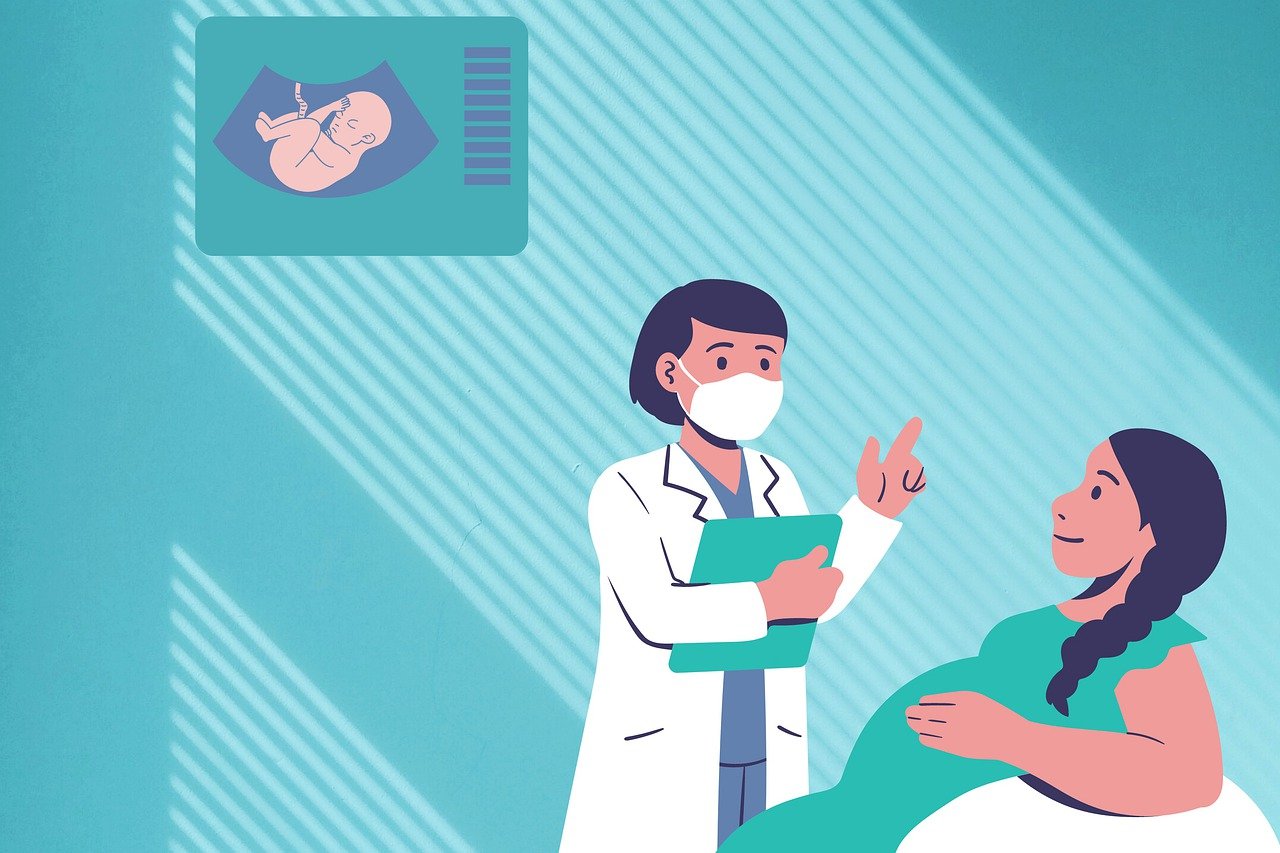
SUMMER SCHOOLS
AGRITOURISM AS LOGISTICAL SUPPORT FOR THE SUSTAINABILITY OF THE NATURAL AND CULTURAL HERITAGE
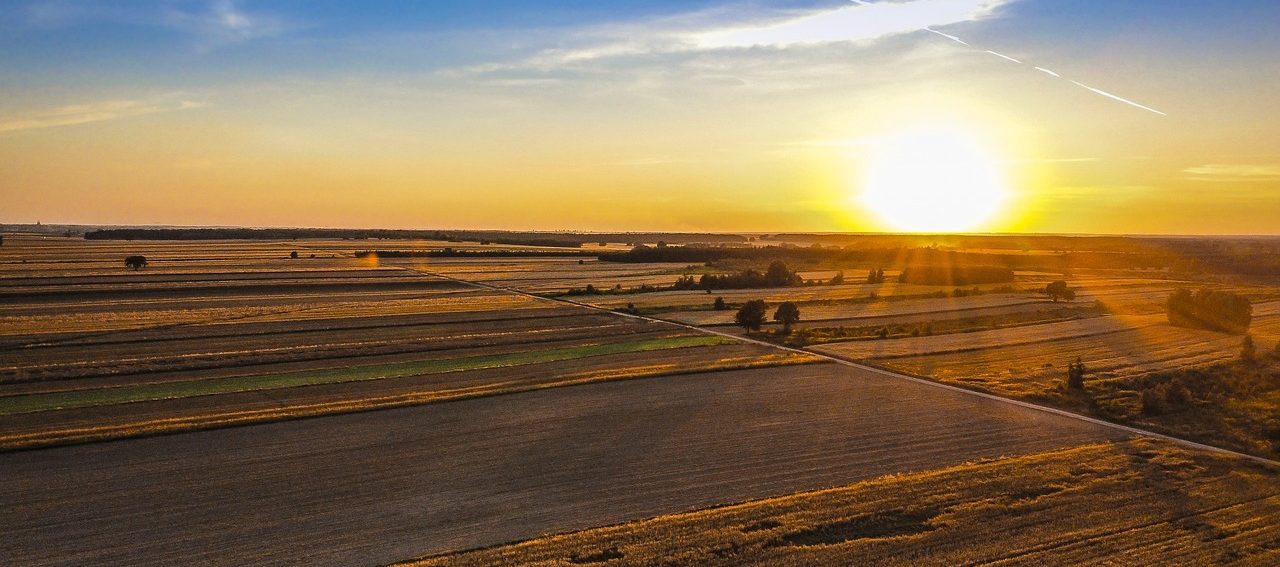
The interdisciplinary spring school “#TASA spring school: Agritourism as logistical support for the sustainability of the natural and cultural heritage“, took place within the CEEPUS network “Tourism and Agriculture Sustainable Alliances #TASA network” coordinated by the Faculty of Logistics, University of Maribor, and focused on fieldwork.
The students from the partner institution University of Banja Luka, Faculty of Sciences, thus carried out their compulsory fieldwork abroad as part of their study programme.
The spring school aimed to highlight the importance of logistics and supply chain management in the process of linking the two economic activities of agriculture and tourism. Students were given practical examples together through fieldwork, the importance of logistics and supply chains, which, if they are planned in a strategic way, contribute significantly to the sustainability of the natural and cultural heritage of rural destinations and the cross-sectoral integration of the two sectors of the economy. The main part of the spring school was fieldwork based on case studies, where participants learned about concrete logistical problems encountered in the conservation of natural and cultural heritage.
Summer school coordinator: Asst. Prof. Ddr. Lazar Pavić (lazar.pavic@um.si)
SUMMER SCHOOLS
2ND INTERNATIONAL SUMMER SCHOOL »SUSTAINABILITY IN INTERNATIONAL BUSINESS« 2023

The summer school was organised as a Blended Intensive programme (BIP) with a physical and a virtual part.
Virtual part
The virtual part of the International Summer School took place on 8 September 2023 via MS Teams. The three-hour event was structured into two parts: the interactive lecture and case studies presentations. In the interactive lecture, the concept and the importance of sustainability in international business were discussed: the coordinator of International Summer School, Assoc. Prof. Dr. Romana Korez Vide, reviewed the key dimensions of sustainability, the importance of their implementation, and the areas for their implementation in international business. She presented the economic, environmental, and social dimensions of sustainability and the approaches in which they can be implemented in international business operations. In this context, the most widely used indicators for measuring sustainability in international operations were reviewed. Between each part of the presentation, the students were given a brainstorming opportunity: they were asked particular questions about the discussed topic and listed possible answers in the « chat » MS Teams communication option. The students thought about possible answers to the following questions: what is sustainability, what is international business, what is sustainable international business, and how sustainability can be implemented in international business? Each set of answers was followed by the discussion and presentation of Dr. Korez Vide. Based on the described pedagogical approach, the students actively followed the presentation and got the opportunity to co-create the lecture and deepen their understanding of the topic. The goal of the interactive lecture was to get a theoretical overview of the fundamentals of summer school’s topic, as a basis for a better understanding of its practical aspects. The case studies’ presentations were performed by students: their task was to select the company from their home country and describe the implementation of sustainability in the company’s international business operations according to set instructions. The students prepared the 5-slide long PPT presentations and after their personal short presentation, they started to summarize the most important points from their selected case studies. After each presentation, Dr. Korez Vide offered the opportunity for questions and comments. The goal of the case studies presentations was to get an initial insight into various sustainable business practices from countries of students’ origin and to reflect upon them. At the end of both parts of the virtual event, students had the opportunity to ask questions about the summer school’s planned program and/or its organizational aspects. They were informed that the broad range of study literature is uploaded in the MS Teams channel of Summer School: three PPT lectures on theoretical aspects of summer school topics, numerous internet resources, case studies presentations of guest lecturers at the Summer School, and the coursebook. Students can also access each others‘ PPT presentations of case studies. In both parts of the virtual event, the students showed a high level of interest in the topic and consequently, their engagement in the discussion was the same. The set learning goals of the virtual event were achieved.
Physical part
Sustainability is becoming an increasingly important development orientation in business operations. It is rooted in the negative consequences of the neoliberal development paradigm in the world and the calls for sustainable development by international organizations and national governments. The latter implies that countries, organizations, and individuals not only focus on achieving economic prosperity but also seek to have a positive impact on the natural environment and society. International business involves interactions and business activities between many countries, companies, and stakeholders. Such dimensions of action offer opportunities to raise awareness of the importance of sustainable development across large geographical spaces and among many audiences. At the same time, they present a number of tests for companies on their real commitment to sustainability. Companies are responding to calls to implement sustainability in their business practices with varying degrees of commitment; some incorporate aspects of all three pillars of sustainability (economic, social, environmental) into their international business practices, while others focus on just one or two. Companies have different approaches to measuring and reporting on the implementation of sustainability aspects in their business. Multinational companies offer many examples of good as well as bad practices in this area. The global health crisis, the war in Eastern Europe, and international geopolitical turbulences increase the importance of sustainability in international business. These developments not only represent levers for much-needed transformations of business activities or entire corporate business models towards sustainability but also opportunities to reverse harmful socio-economic trends and increase the global competitiveness of countries and companies.
Key topics of the summer school were the following:
- The concept and meaning of sustainable development
- The concept of sustainability
- Economic, ecological, and social aspects of sustainable business
- The concept of international business
- The concept of sustainable international business
- Benefits and challenges of implementing sustainability in international business operations
- Promotors of sustainable business, focusing on EU mechanisms (European Green Deal actions and EU regulation, Sustainable digitization of the EU (digitalSME.eu), EU funding for “green transformation” etc.)
- Sustainability in the value chain
- Sustainability in international marketing
- Sustainability in international supply chains
- Digitalisation as a sustainable practice in international business
- Approaches and models to measure sustainable business
- Green transformation as a sustainable practice in international business
- Examples of good sustainable business practices of multinational companies
- The issue of “greenwashing” and the importance of consumer awareness
- ESGs reporting standards and challenges of reporting
- Future perspectives on sustainable development and sustainable business
The key objective of the International Summer School was to raise students’ awareness of the concept of sustainability in international business as an indispensable orientation in companies’ business models with the aim of building long-term sustainable and resilient socio-economic environments of countries and higher global competitiveness of companies. Activities included learning about good practices for implementing sustainability in international business, with a focus on international value chains (global sourcing, logistics, manufacturing, and customer relations). The program of the summer school included lectures by national/foreign lecturers and practitioners, learning workshops with active student work (individual/team work using innovative learning and teaching methods), and a study tour to selected Slovenian companies in Primorska region (Vina Koper and Luka Koper). Students had the possibility to engage in social events, organized by UM and FEB. By organizing interactive virtual lectures, including students‘ presentations, and by offering students the opportunities to listen and engage in discussions with experienced managers, the second goal of the summer school – increasing the level of students‘ theoretical and experiential knowledge on the topic – was achieved. Additionally, socializing with students from different countries and building new acquaintances, and friendships led to the realization of the third important goal – increasing the students‘ multicultural experience.
KIP methods and results
The lectures and workshops educated students on the external and internal drivers of integrating sustainability into business models, the benefits of such integration for business, society, and the natural environment, indicators and approaches to measuring the implementation of sustainability in business activities, global and regional initiatives, and mechanisms to support the implementation of sustainability in business, with a focus on the European Union mechanisms, including ESG reporting standards, and the anticipated impacts, challenges and approaches to managing the challenges of such reporting.
Invited lectures by guests from the practice provided students with an insight into how sustainability can be implemented in the business models of international companies from several manufacturing and service industries in different sectors of the economy. 14 companies participated in the summer school with their presentations of best practices: Elan d.o.o., Roto skupina d.o.o, Hofer trgovina d.o.o., Steklarna Hrastnik d.o.o., Lumar inženiring d.o.o., General Logistics Systems (GLS) Slovenia d.o.o., Abena Group Denmark, Adria Mobil d.o.o., TÜV Austria servis d.o.o., Lidl Slovenija d.o.o. k.d., Alples d.d., Sava Re d.d., Vinakoper d.o.o. and Luka Koper. 16 representatives of the companies presented to the students the strategic and operational aspects of integrating sustainability into their international supply and value chains. Mr. Leon Korošec from company Elan presented sustainability implementation in the sports equipment industry. He presented Elan’s contribution to global development goals, sustainability drivers in the company, top 5 sustainability goals in the company, the company’s approaches to measuring progress in the field of sustainability implementation, as well as the company’s guiding principles in the field of sustainability. Ms. Nuša Pavlinjek Slavinec from ROTO Group, among others, introduced sustainability in the company‘s production, which is ensured through the use of composites and biodegradable and recycled polymers, as well as artificial intelligence. The lecture on the implementation of sustainability in HOFER Slovenia was given by Mr. Bor Trček. Mr. Trček started his lecture with Robert Swann’s thought that “the greatest danger to our planet is the belief that someone else will save it”. He then encouraged the students to think about the possibilities of achieving greater sustainability in a food product – students brainstormed ingredients in a food product that demonstrate the implementation of sustainability. He presented HOFER Slovenia’s responsibility towards customers, partners, employees, the natural environment, and society at large, the company’s steps on the way to implementing social responsibility, activities, and practical examples of social responsibility for consumers (healthy lifestyle – recreation, nutrition), employees (fair pay, well-being, personal growth and development, volunteering activities), the local community (sponsorships for humanitarian organizations, UNICEF, etc.), and other stakeholders. The students also learned about HOFER’s purchasing standards and the company’s achievements in this area. HOFER Slovenia also raised awareness of its commitment to sustainability among the students of the International Summer School in a direct way – by donating products that demonstrate the company’s real commitment to sustainability and social responsibility. Mr. Tilen Sever, a representative of a company Steklarna Hrastnik gave an in-depth presentation of numerous innovative approaches to sustainability implementation in the company, operating in the glass production industry. He focused mainly on the environmental aspects of sustainability in all three scopes of value chain activities. He presented the sustainability analysis, based on the LCA of a glass product. Mrs. Nataša Teraž Krois from a construction company Lumar presented the passive and active types of houses as examples of sustainable products. She explained the economic, environmental, and social sustainability aspects of these products. Students have the possibility to listen to video presentations of sustainability aspects in the company’s General Logistics Provider (GLS). A number of environmental, economic and social aspects of sustainability in GLS were presented by Mrs Sanja Čeman and Mrs Maja Kovačević. The students also had the opportunity to hear from a representative of the Danish company Abena Group, which supplies healthcare and various other types of industries in the B2B sector, and to a lesser extent also operates in the B2C market. Mrs. Vanessa Hoffmann presented the UN SDG goals the company is pursuing, their targets for each goal, how the company is implementing sustainability internally and externally, what indicators the company uses to achieve the goals, how it conducts LCA analysis of products, what standard it uses and what challenges it perceives in relation to the envisaged mandatory reporting under the CSRD. Company Adria Mobil was represented by Mr. Matjaž Marovt, who presented the background to their envisaged sustainability strategy, and a number of challenges the company faces in terms of sustainability implementation. Mrs. Martina Drakulić, representative of the company TÜV AUSTRIA Servis and certified strategist for social responsibility and sustainable development, presented the Green Scheme for Slovenian Tourism and the concept and story of the Slovenia Green brand as the main tools for achieving and promoting sustainability in Slovenian tourism. She presented the economic and social importance of tourism in the world and the concept of sustainable tourism. The students were introduced to carbon footprint calculator applications, global sustainability initiatives in the context of World Tourism Day, the role of the Global Sustainable Tourism Council, tourism in the context of the UN Sustainable Development Goals, examples of eco-labels and certificates for sustainable tourism, sustainable orientations in the Slovenian Tourism Strategy 2028, key practical examples demonstrating the sustainable orientation of Slovenian tourism, the process of including tourism providers in the Green Tourism Scheme, the support institutions in Slovenia for the development of sustainable tourism, the key guiding documents for the development of sustainable tourism in Slovenia, Slovenia’s awards and prizes in the field of sustainable tourism, government financial support for the development of sustainable tourism, including the creation of green jobs in tourism, the concept and criteria for obtaining the international Green Key eco-label for tourism accommodation providers, and the so-called green accommodation in Maribor tourism and how to promote them online. Students have also the possibility to listen to the good practices of Slovenian furniture producer – company Alples. Mrs. Katarina Globočnik presented several steps that the company has taken in relation to sustainability implementation. The company is proud of several ecological and social approaches toward achieving higher sustainability of its business operations. Mrs Edita Rituper and Mrs. Nastja Govejšek from Sava Re company focused on the presentation of sustainability issues in the field of investments. They presented also the challenges of future mandatory reporting on EU ESG reporting standards. Mrs. Tina Cipot from Lidl Slovenia presented LIDL’s key values that support sustainable business, the development and content of LIDL’s corporate social responsibility strategy, the corporate social responsibility model of LIDL’s supply chain, LIDL’s activities that raise awareness and strengthen the corporate social responsibility and sustainability in society, LIDL’s corporate social responsibility reporting, the online promotion of its corporate social responsibility activities, Lidl’s sustainability campaigns, the involvement of employees in Lidl’s CSR and sustainability concept, Lidl’s plastic reduction project with examples of good practices, Lidl’s food waste management and awareness-raising project, support for disadvantaged groups of athletes, Lidl’s socially responsible projects (awareness-raising campaigns, donations, sponsorships) for children, animals and Lidl’s projects raising awareness of the importance of health care.
Through lectures and communication with the company representatives, students learned about the ways, support mechanisms, measurement approaches, benefits, and challenges of integrating sustainability into companies’ business models, as well as opportunities for students to work with companies on theses and student internships.
The study tour to the Primorska region offered students an insight into the areas and challenges of implementing sustainability in the wine industry (Vina Koper) and in a logistics company (Luka Koper). The study tour also provided students with an additional cross-cultural experience and an insight into Slovenia as a tourist destination. The Summer School ended with a cultural event – a visit to Maribor Regional Museum – and the awarding of certificates, which acknowledged 3 ECTS to students.
SUMMER SCHOOLS
SIMULATION AND GAMES IN NURSING EDUCATION 2023
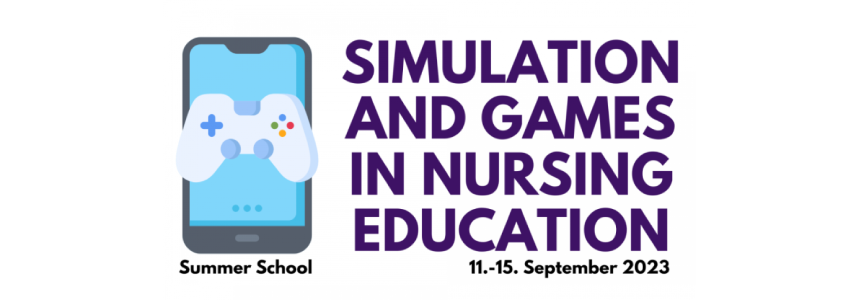
The summer school was organised as a Blended Intensive programme (BIP) with a physical and a virtual part.
Virtual part
The participants were asked to prepare a presentation about their institution, their country, and themselves before joining the MS Teams workshop.
After the welcome and short introductions of the summer school content and programme changes, every participant gave extensive reports with carefully prepared PowerPoint presentations characterising themselves as students and persons as well as illustrative describing their university, school, country, and health system.
After that, Madara Blumberga, Head of Simulation Education Development at the Latvian Rīga Stradiņš University gave an interactive lecture „Simulation as a Tool for Skills in Pediatric” and carried out an online simulation session. This session allowed participants to actively engage in hands-on learning experiences, using simulation as a powerful educational tool to simulate real-life pediatric scenario. During this lecture, she provided valuable insights into using simulation techniques to enhance pediatric skills.
Physical part
Summer School “Simulations and Games in Nursing Education” aimed to provide both domestic and international students with education in nursing through simulations that simulate real healthcare environments and through gamification that align with modern society’s expectations of future healthcare professionals.
The work was predominantly carried out in teams, where students tackled various healthcare challenges. The teams were awarded points daily for their performance, keeping it competitive and game-like. These points accumulated, and at the end of the programme, the best-performing team received a symbolic prize for their dedicated efforts throughout the summer school.
This summer school offered students excellent educational content and strived to make their stay in Maribor and Slovenia unforgettable. Students have also enjoyed in various social activities, providing opportunities for professional and interpersonal networking.
KIP methods and results
Fristly the students had the opportunity to listen to Sr Lect Taina Romppanen and Lect Sanni Vourinen‘s lecture from Kajaani University of Applied Sciences and DIGIHOI – DON’T LEAVE project. By breaking down geographical barriers, embracing technology, and reimagining the ways in which nursing education is delivered, this project is at the forefront of transforming the future of clinical competence training in nursing.
In the next activities, prepared by a dedicated team from UM FHS (Sr Lect Barbara Donik, Nino Fijačko, Assist Lucija Gosak, Sr Lect Barbara Kegl; Lect Petra Klanjšek and Assist Kasandra Musović), students engaged in various board games centred around different educational topics such as health maintenance, disease knowledge, and physiological changes. Additionally, students developed their research skills in the PICO question game, using cards to formulate different research questions.
In the “Scenario Resolution Using Advanced Technology” activity students used virtual reality to address scenarios based on both adult and pediatric populations. These scenarios guided them through disease management. Through virtual reality, students updated their knowledge in the emergency medicine field. Scenario resolution in a simulated environment with a high-fidelity simulation mannequin was carried out in teams, focusing on pediatric patients (e.g., difficulty breathing). After completing the scenarios, there was a debriefing session in a relaxed environment where lecturers reviewed the students’ performance in the simulations. This hands-on approach provided students with a unique opportunity to apply their knowledge and hone their pediatric skills in a controlled and safe environment, ultimately improving their preparedness and competence in pediatric care.
The Escape Room is a well-established approach within healthcare education. It imparts teamwork skills to students by challenging them to uncover clues that ultimately lead to the primary objective: successfully exiting the room. These health-related clues focused on topics such as sudden cardiac arrest and provided valuable educational content. Remarkably, four out of five groups demonstrated effective cooperation, enabling them to complete the escape challenge successfully.
The subsequent activity for summer school participants involved the creation of 3D infographics focused on healthcare subjects. These infographics illustrated frequently used healthcare materials and equipment, including items like venturi masks and endotracheal tubes. Through this undertaking, students acquired in-depth knowledge of the technical specifications associated with healthcare materials and equipment, a crucial aspect of their preparation for future professional roles.
Additionally, students had the opportunity to explore the snoezelen rooms at ZUDV Dornava, which are designed to create a serene atmosphere and feature calming equipment. These rooms are primarily utilised for individuals dealing with conditions like autism spectrum disorders, dementia, and developmental disorders. During their visit, students observed the execution of various activities and engaged in sensory experiences, which encompassed sound, visual elements, aromas, and other sensory stimuli.
One of the participating teams of students (from variuous countries) demonstrated the highest level of cooperation throughout the entire week and also accumulated the most points during the final presentations on the last day of the summer school.
SUMMER SCHOOLS
UNIVERSITY OF MARIBOR OPEN SCIENCE SUMMER SCHOOL 2023
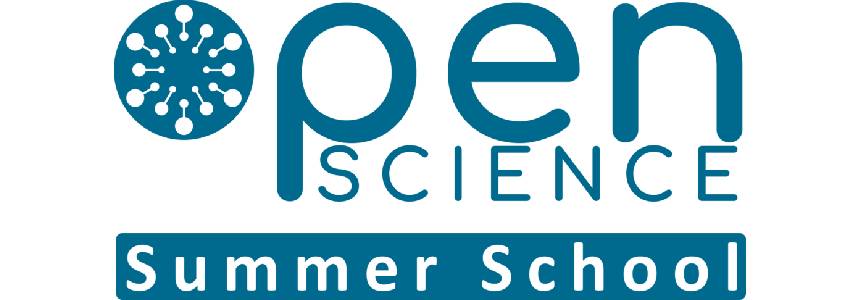
The summer school was organised as a Blended Intensive programme (BIP) with a physical and a virtual part.
Virtual part
The virtual part of the BIP was carried out as an MS Teams meeting with the following content:
- Open Science – an introduction: How can I open my research?
- benefits, requirements and potential rewards in practising open science,
- diversity of outputs throughout the research lifecycle,
- practices, tools and communication channels that ensure research openness,
- FAIR and CARE principles and Responsible Research and Innovation requirements.
- Systematic literature review
- difference between a classic literature review and a systematic literature review,
- methods of doing SLR developed at Griffith University,
- the usefulness of different methods,
- value of systematic literature review.
- Introduction to the course and practical information
- Information about arriving in Maribor, accommodation
- Practical information prior to the arrival of participants
During the presentation, the participants collaborated with questions and discussion. The purpose of the virtual meeting was to provide participants with important information prior to their arrival to Maribor (regarding accommodation, orientation in the city etc.) and to allow them to prepare for lectures before arrival with an introductory lecture on open science and systematic literature review of their thesis or study courses.
Physical part
Skills and competencies related to data literacy and research data management are indispensable in today’s data-intensive research environment, both in STEM as in the humanities and social sciences. In recent years, there has been a significant shift towards open science in scientific communication, and many new approaches, tools and technologies have appeared that enable a research process that goes beyond the traditional way of research work. Open science has the potential to lead researchers to an open, collaborative, transparent, reproducible and, therefore, efficient research process.
The objective of the University of Maribor Open Science Summer School was to offer students and researchers at the beginning of their careers the opportunity to learn about and develop skills in the areas of research data management and learn to provide open access to their research results/findings. Through lectures and workshops led by national and international experts, we enabled a deeper understanding of these topics and provided valuable practical experience. The goal was to ensure that young researchers were empowered to practice open science. Talks and workshops included the following topics:
- Open data, FAIR data and research reproducibility
- Data management plan (DMP) writing
- How to find a suitable (data) repository
- Copyright and licenses
- How to manage sensitive and personal data
- European Open Science Cloud and (open) research infrastructure.
KIP methods and results
With lectures and workshops led by domestic and international experts, the course provided a deeper understanding of topics concerning research data management, open science, science communication, copyright issues in sharing research results and insight into valuable practical experience.
- Lectures: During the lectures, the participants learned about the theoretical and practical aspects of open science, research data management, the FAIR principles, copyright and ensuring open access to their research results.
The lectures covered all essential stages of the research process in the context of open science tools that go beyond traditional research methods.
Result: A deeper understanding of open science in theory and practice.
- Workshops: With the help of interactive workshops, the participants gained practical experience in the field of planning research data management and ensuring open access to their research results. They also familiarized themselves with the services and possibilities of using the European Open Science Cloud.
Result: Acquisition of practical experience in the field of research data management and using European research e-infrastructure.
- Field trip: The participants had a guided tour of the research institution IZUM (Institute of Information Science) in Maribor, where they got to know the infrastructure and the flow of data-intensive work and big data management.
Result: Familiarization with good practices in a research institution or company.
- Social activities: The reception of the participants in the form of an introductory evening together and other social activities with some of the lecturers who were actively involved in the implementation of the entire program were aimed at getting to know each other and networking for possible future joint projects.
Result: Getting to know the participants and networking in the future.
- Course materials: The participants received pre-reading materials to familiarize themselves with the topics before the physical part of the course. All the lectures were published on the course website in video format, as well as the presentations, which are made available in open access for future reference and (re)use.
Result: Availability of course materials for future reference and (re)use for the participants as well as the wider public in line with open science principles.
- Course assessment: The participants were asked to fill out an evaluation form at the end of the course and evaluate the quality and value of the course.
Result: The feedback will help us deliver even more engaging training in the future.
SUMMER SCHOOLS
CEEPUS TRANS 2023 – TRANSLATION AND TRANSCULTURAL BUSINESS COMMUNICATION 2023
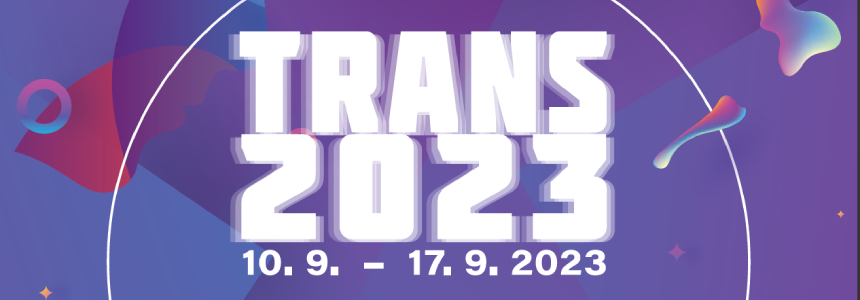
SUMMER SCHOOLS
3RD INTERNATIONAL SUMMER SCHOOL “ORGANIZATION, MANAGEMENT & SOCIETY” 2023
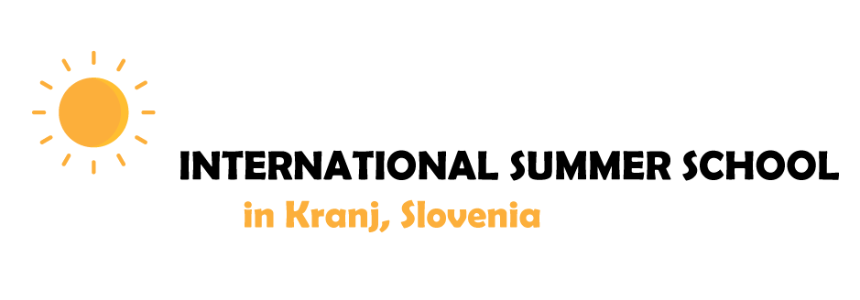
The summer school was organised as a Blended Intensive programme (BIP) with a physical and a virtual part.
Virtual part
The virtual meeting was organised as the first, introductory day four days before the physical mobility and as the last activity one week after the on-site summer school. The first virtual meeting served to introduce the faculty and the organisation of the summer school. It consisted of a series of lectures, workshops, the presentation of the company that contributed the case study, workshops and two social events with sightseeing tours to Kranj and Ljubljana. We presented the programme of the summer school, the schedule, the planned working methods and the local and guest professors teaching at the summer school. We welcomed 25 students from 8 European countries. The virtual part of the first day‘ ended with a lecture by Assoc. dr. Gregor Lenart on the subject of Trends in Information Systems. The last day was reserved for the presentation of the student groups’ solutions for the case study competition. The students were divided into six groups. Each group had 15 minutes for the presentation and another 10 minutes to answer the questions of the jury members. After the presentation, the jury discussed the solutions, taking into account the degree of innovation of the proposed solution and its feasibility. At the end, the chairman of the jury justified the order established and the winners of the case study competition were announced. Finally, we dedicated a few words to the participants about their impressions of the summer school and discussed possibilities for improvement. We presented a short student film that had been shot during the summer school.
Physical part
The objectives of the summer school were to provide students from different European countries with a stimulating learning environment and an exceptional educational experience that would enable them to acquire a broader understanding and deeper knowledge in the field of organisation and management in the age of rapidly evolving information systems and AI. Our objectives included: Improve understanding of organisational processes. The aim was to give students an insight into the complexity of organisational processes and how they influence the successful functioning of organisations through the three main pillars of people, processes and information systems. Developing competencies for managing people, which are key to the success of any organisation, where we enabled students to develop communication, leadership and intercultural skills. Understanding the role of information systems, where the aim was to explain how information systems affect the functioning of organisations and how the correct use of information technology can improve efficiency and competitiveness, and the role of creativity in generically generated content. Collaborative learning and creativity, encouraging students to learn together and think outside the box. The development of intercultural competence, where students learned to consider the diversity of approaches to solving challenges and to recognise the impact of culture on ways of working and communicating. Understanding the impact of artificial intelligence on organisations from the perspective of embedded personnel as well as processes and technology requirements. Developing analytical skills, with students learning data visualisation methods for decision making. Combining theory and practise, where the organised case study competition enables students to apply the knowledge they acquired in a real business environment. Fostering teamwork skills, where students learned to work in teams while developing communication and leadership skills. In line with our objectives, we have provided students with a holistic educational experience that will benefit them in their future studies and careers.
KIP methods and results
Methods: A series of expert lectures were organised covering various aspects of organisation and management, including processes, HR, information systems, with a focus on the impact of artificial intelligence on these areas. The lectures were delivered both online and face-to-face.
Workshops: Students were able to gain hands-on experience through workshops such as Lego Bricks, creativity and intercultural communication. The case study competition dealt with a task set by the Aviation Career Centre, Slovenia. This allowed the students to apply their theoretical knowledge to real business scenarios.
Collaborative learning: Students were encouraged to work together and share ideas, both with each other and with professors and company representatives. Group work was essential for solving the case study problem.
The outcomes of the summer school included the knowledge gained, practical skills, improved communication and teamwork skills that will benefit the students in their further education and career path. Networking was also important, as students had the opportunity to exchange ideas with peers from different European countries and make contacts with professors and company representatives.
SUMMER SCHOOLS
RENEWABLE ENERGY SOURCES 2023
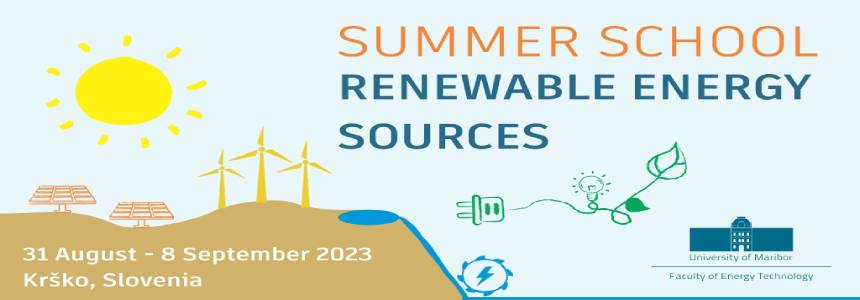
The summer school was organised as a Blended Intensive programme (BIP) with a physical and a virtual part.
Virtual part
The virtual part took place with the help of the software tool Ms Teams. As part of the virtual part, on the first day (August 31, 2023), after the introductory greeting and presentation of the Faculty of Energy of University of Maribor, the students listened to a lecture entitled “The role of renewables in the power grid and how to live with them”, which was given by Prof. dr. Peter Bracinik from the Faculty of Electrical Engineering and Information Technology, University of Žilina, Slovakia. On the second day of virtual work (September 1, 2023), Prof. dr. Peter Bajor from the University of Dunaújváros, Hungary gave two lectures entitled “Integration of renewable energy sources via low-cost demand-driven solutions in energy systems” and “The possible roles of electric vehicles in balancing power systems”. The afternoon was devoted to geothermal energy, where prof. dr. Jurij Avsec presented the basic theory related to geothermal energy and as well its possibilities in the world, Europe and Slovenia. Then, based on the presented theory of geothermal energy, assistant Urška Novosel solved practical cases with the students.
Physical part
The main objectives of the summer school are:
- to enable students to understand the field of photovoltaic systems, the main parts of which are the solar module and the inverter;
- to provide basic knowledge about photovoltaic systems;
- to train the student for independent handling of solar modules, inverters, and placements of photovoltaic systems;
- to acquaint students with the trends in the field of hydrogen and methanol technologies and to show them the application of hydrogen technologies in engineering practice;
- to introduce students the fundamentals of heat transfer and heating and cooling systems;
- to show physical models and thermodynamic calculations for the calculation of heat and mass exchangers;
- to provide basic knowledge in the field of hydropower and windpower systems;
- to introduce students to the basic knowledge in the field of pump and compressor systems;
- to understand the basic operation of wind turbines;
- wind turbine characteristic measurement;
- find out what line losses are and how they are calculated;
- measurement of line losses on a given pipe;
understand the basic operation of hydraulic shock.
KIP methods and results
The main methods of the summer school are:
- Lectures (students learn the theoretical foundations of the field)
- Tutorial (performing calculation cases)
- Laboratory exercises (students consolidate theoretical knowledge on practical examples and learns about applicability).
The main results of the summer school are:
- students are able to identify, describe and explain the operation of photovoltaic systems and their components;
- students learn the basic methods and physical principles connected with hydrogen technologies;
- students understand and solve some problems related to hydrogen technologies;
- students learn basic methods and physical principles in modern thermodynamics and understand and solve some problems related to thermodynamics and heat transfer;
- students apply methods of thermodynamics in energy practice;
- students describe the basic principles of placing the hydropower and wind power systems in the environment;
- students are acquainted with the management-operation of the hydropower system parameters;
- students understand the basic principles of placing the pump and compressor system (in powerhouse);
- students learn about the operation of wind turbines and about the process of measuring the characteristics of wind turbines;
- students learn about line losses and the process of calculation and experimental measurements;
- students learn about hydraulic impact.
SUMMER SCHOOLS
CEEPUS SUMMER SCHOOL OF SLOVENE AS A SECOND AND FOREIGN LANGUAGE – SLOVENE AT FIRST SIGHT 2023
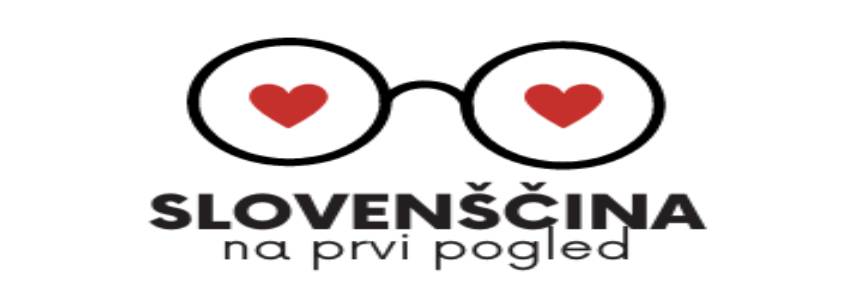
SUMMER SCHOOLS
10TH INTERNATIONAL LOGISTICS SUMMER SCHOOL – SUSTAINABLE TRAVEL: RE-DEFINING THE WORLD OF TRAVEL 2023

The summer school was organised as a Blended Intensive programme (BIP) with a physical and a virtual part.
Virtual part
The virtual segment of the 10th International Logistics Summer School, titled “Sustainable Travel: Re-defining the autonomous Drones will make last-mile deliveries in the future on sustainable travel practices. This segment was structured to provide a comprehensive understanding of the challenges and opportunities in sustainable tourism, focusing on the main topics under the theme of “Sustainable Aspects of Travel.”
One of the key elements of the program was a detailed examination of the business model of a dispersed hotel. This topic was dissected through various sub-topics, offering participants an opportunity to delve into the intricacies of sustainable hospitality management. This part of the course aimed to foster a deeper understanding of how dispersed hotels can contribute to sustainable tourism while maintaining a profitable business model.
An engaging and innovative case competition titled “Pack a Green Suitcase! ” was a significant part of the virtual program. Participants were presented with various problems to solve, which included raising awareness among mass tourists about sustainable travel, greening transportation methods, and developing sustainable mobility solutions for destinations. One key challenge was designing a business model for a dispersed hotel in six defined destinations, specifically targeting a group identified in a case study featuring an archetype of an unsustainably oriented tourist, Mr. Klimko Netrajnostnik (Clemes Non-Sustainable).
The case study also addressed the actual problems of local communities, particularly those affected by floods in Slovenia in August. Participants were required to consider various elements in their proposed business model, such as stakeholder identification and roles, communication and cooperation with the local environment and external stakeholders, resource analysis for the proposed destination, and detailed hotel infrastructure and services planning.
This approach ensured a holistic view of sustainable tourism, encouraging participants to consider environmental, economic, and social aspects in their solutions. The program’s design fostered critical thinking and innovative approaches, making it an enriching and educational experience for all involved.
Physical part
The physical segment of the 10th International Logistics Summer School, integrating the courses “Sustainable Aspects of Travel” and “The Business Model of a Dispersed Hotel,” provided a dynamic and immersive educational experience. Beyond the enriching lectures and case study preparations, a significant highlight was the opportunity for participants to gain first-hand insights into excellent Slovenian practices through visits to various Slovenian regions. These excursions served as practical extensions of the theoretical knowledge imparted in the classroom, offering a unique perspective on sustainable travel practices in a real-world context solution.
The participants, through these two courses, acquired valuable competencies and knowledge, fostering not only academic growth but also the formation of long-lasting friendships and professional networks. This aspect of the summer school was particularly impactful, as it facilitated the exchange of ideas and cultural understanding among a diverse group of international attendees.
A pivotal component of the physical segment was the case study competition, where participants tackled complex challenges in sustainable development. The initial case featured an archetype of an extremely unsustainable tourist, Mr. Klimko Netrajnostnik. The first part of the competition challenged teams to use marketing tools to persuade Mr. Netrajnostnik to opt for a sustainable tourism product.
The final part involved developing a business model for a dispersed hotel to address the issues of the aforementioned places and appeal to Mr. Netrajnostnik.
The presentations by all teams surpassed the expectations of the expert committee, which faced a challenging task in selecting the winner.
This comprehensive approach to sustainability enabled students to delve into the complex challenges of sustainable development and mobility, requiring an interdisciplinary approach and innovative thinking.
At the Faculty of Logistics, we take pride in the achievements, knowledge, and skills acquired by the students during this unique experience. Moreover, we are immensely gratified to have provided a platform for connection and collective growth, echoing our commitment to fostering a sustainable future.
Integrating the objectives into the physical segment of the 10th International Logistics Summer School significantly enhanced the learning experience. The primary objectives of this segment were to provide comprehensive knowledge on sustainable travel and hospitality management, foster interdisciplinary thinking, and encourage practical application of theoretical concepts.
KIP methods and results
The methods and results of the physical segment of the 10th International Logistics Summer School were pivotal in achieving its educational and developmental goals. The methodology employed in this segment was multifaceted, combining traditional and innovative pedagogical approaches to maximize learning outcomes.
Methodology:
- Interactive Lectures: The program featured a series of interactive lectures by esteemed academics and professionals in the field of sustainable travel. These lectures were designed to provide foundational knowledge and stimulate critical thinking.
- Case Studies and Competitions: Participants engaged in case studies, focusing on real-world challenges in sustainable tourism. The case competition, particularly involving the archetype of an unsustainable tourist, Mr. Klimko Netrajnostnik, was a significant methodological component. It required participants to apply their theoretical knowledge to practical situations.
- Field Trips: Visits to various Slovenian regions were integral to the methodology, offering participants an immersive experience in observing sustainable tourism practices.
- Collaborative Work: Throughout the program, emphasis was placed on teamwork and collaboration, fostering a cooperative learning environment.
- Expert Guidance and Feedback: Continuous guidance and feedback from lecturers and industry experts were provided, ensuring a robust learning process.
Results:
The outcomes of this integrative approach were remarkable:
- Exceptional Solutions for Tourist Destinations: One of the most notable results was the preparation of exceptional solutions for selected tourist destinations. Participants, through their case studies and projects, developed innovative and practical strategies for promoting sustainable travel in these destinations.
- Competency Development: The participants acquired and honed a range of competencies, including critical thinking, problem-solving, sustainable tourism planning, and collaborative skills.
- Knowledge Application: The successful application of theoretical knowledge to real-world scenarios was evident in the solutions proposed for the case studies, demonstrating a deep understanding of the complexities of sustainable tourism.
- Network Building: The program facilitated the building of professional networks and friendships among participants, which are expected to be beneficial for their future careers and collaborations.
- Positive Feedback from Experts: The solutions and presentations by the participants received positive feedback from the expert committee and guest lecturers, affirming the high quality and applicability of the work produced.
In summary, the methods employed in the summer school’s physical segment effectively engaged participants in a deep and practical exploration of sustainable travel. The results, particularly the exceptional solutions devised for tourist destinations, underscore the success of the program in achieving its educational and developmental objectives.















































